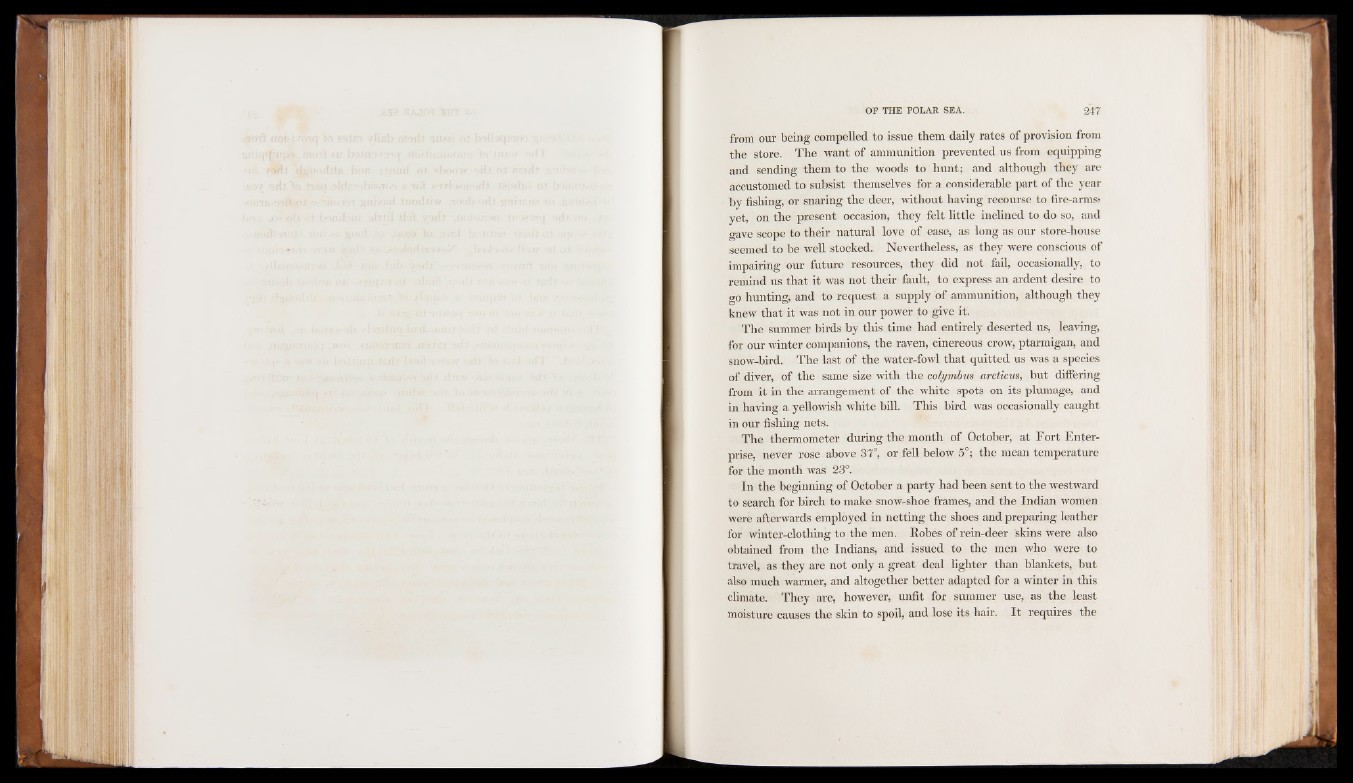
from our being compelled to issue them daily rates of provision from
the store. The want of ammunition prevented us from equipping
and sending them to the woods to hunt; and although they are
accustomed to subsist themselves for a considerable part of the year
by fishing, or snaring the deer, without having recourse to fire-arms»
yet, on the present occasion, they felt little inclined to do so, and
gave scope to their natural love of ease, as long as our store-house
seemed to be well stocked. Nevertheless, as they were conscious of
impairing our future resources, they did not fail, occasionally, to
remind us that it was not their fault, to express an ardent desire to
go hunting, and to request a supply of ammunition, although they
knew that it was not in our power to give it.
The summer birds by this time had entirely deserted us, leaving,
for our winter companions, the raven, cinereous crow, ptarmigan, and
snow-bird. The last of the water-fowl that quitted us was a species
of diver, of the same size with the colymbus arcticus, but differing
from it in the arrangement of the white spots on its plumage, and
in having a yellowish white bill. This bird was occasionally caught
in our fishing nets.
The thermometer during the month of October, at Fort Enterprise,
never rose above 37°, or fell below 5°; the mean temperature
for the month was 23°.
In the beginning of October a party had been sent to the westward
to search for birch to make snow-shoe frames, and the Indian women
were afterwards employed in netting the shoes and preparing leather
for winter-clothing to the men. Eobes of rein-deer skins were also
obtained from the Indians, and issued to the men who were to
travel, as they are not only a great deal lighter than blankets, but
also much warmer, and altogether better adapted for a winter in this
climate. They are, however, unfit for summer use, as the least
moisture causes the skin to spoil, and lose its hair. It requires the